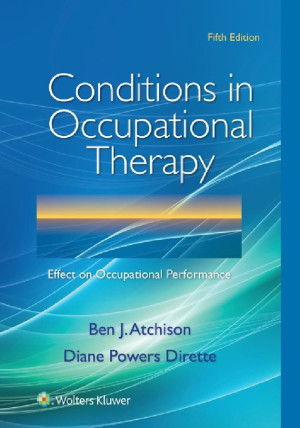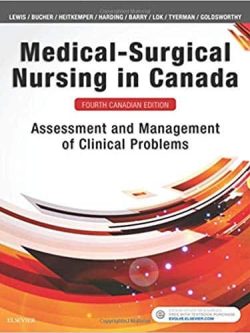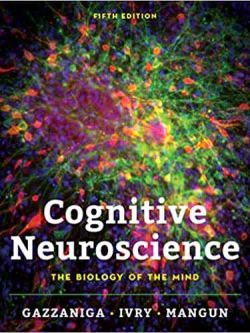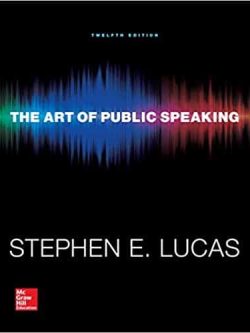Specifications
| book-author | Ben Atchison ; Diane Dirette |
|---|---|
| file-type | |
| isbn10 | 1496332210 |
| isbn13 | 9781496332219 |
| language | English |
| publisher | LWW |
Book Description
“Conditions in Occupational Therapy: Effect on Occupational Performance,” authored by Ben Atchison and Diane Dirette in its 5th edition, serves as a comprehensive resource for occupational therapy practitioners, students, and educators. This book explores how various medical conditions impact individuals' abilities to engage in meaningful occupations and activities of daily living. Here's an overview of what you can expect from this edition:
- Introduction to Occupational Therapy: Atchison and Dirette provide an overview of occupational therapy principles, theories, and models. They discuss the role of occupational therapists in assessing and addressing the impact of medical conditions on individuals' occupational performance and quality of life.
- Understanding Medical Conditions: The book covers a wide range of medical conditions commonly encountered in occupational therapy practice. Each chapter focuses on a specific condition or category of conditions, such as neurological disorders, musculoskeletal conditions, mental health disorders, developmental disabilities, and sensory impairments.
- Etiology and Pathophysiology: Atchison and Dirette explore the etiology and pathophysiology of each medical condition, providing a thorough understanding of its underlying causes, mechanisms, and manifestations. They discuss relevant anatomy, physiology, and pathology to help readers grasp the clinical implications of the condition.
- Impact on Occupational Performance: The authors examine how each medical condition affects individuals' abilities to perform activities of daily living, work tasks, leisure pursuits, and social interactions. They discuss common impairments, functional limitations, and participation restrictions associated with the condition and its treatment.
- Assessment and Evaluation: Atchison and Dirette discuss assessment tools, standardized measures, and evaluation techniques used by occupational therapists to assess clients' functional abilities, strengths, and challenges. They emphasize the importance of conducting comprehensive evaluations to develop client-centered intervention plans.
- Intervention Strategies: The book presents evidence-based intervention strategies and therapeutic approaches for addressing the unique needs of individuals with different medical conditions. Atchison and Dirette discuss therapeutic exercises, activity modifications, adaptive equipment, environmental modifications, and compensatory strategies to promote optimal occupational performance and participation.
- Interprofessional Collaboration: Atchison and Dirette highlight the importance of interprofessional collaboration in occupational therapy practice. They discuss how occupational therapists work collaboratively with other healthcare professionals, caregivers, and community resources to provide holistic care and support for clients with complex medical needs.
- Case Studies and Clinical Examples: Throughout the book, Atchison and Dirette include case studies, clinical examples, and vignettes to illustrate key concepts and principles in real-world practice settings. These examples help readers apply theoretical knowledge to clinical decision-making and problem-solving.
- Evidence-Based Practice: The authors emphasize the importance of evidence-based practice in occupational therapy. They discuss research findings, clinical guidelines, and best practices to inform decision-making and intervention planning.
- Ethical and Legal Considerations: Atchison and Dirette address ethical and legal issues relevant to occupational therapy practice, such as confidentiality, informed consent, professional boundaries, and scope of practice. They provide guidance on ethical decision-making and compliance with professional standards and regulations.
“Conditions in Occupational Therapy: Effect on Occupational Performance” serves as an essential reference for occupational therapy students, practitioners, and educators seeking to understand the impact of medical conditions on individuals' occupational performance and to develop effective intervention strategies to promote health, well-being, and participation in daily life activities. With its comprehensive coverage, practical insights, and clinical relevance, this edition equips readers with the knowledge and skills needed to excel in the field of occupational therapy.












Reviews
There are no reviews yet.